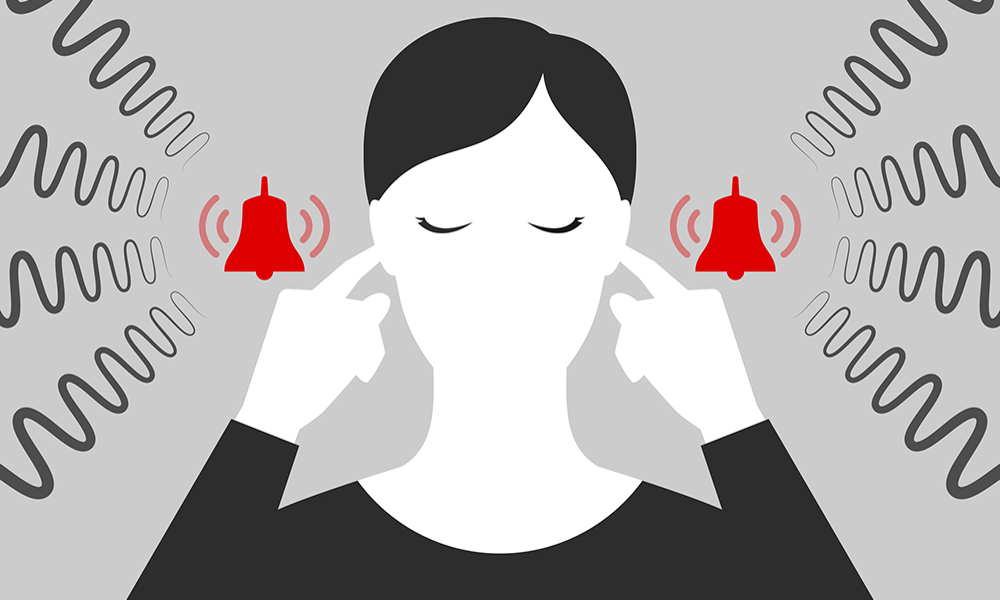Ringing in the ears can be avoided or treated, not cured
JMU News
Harrisonburg, Virginia — More than 50 million Americans experience tinnitus — commonly referred to as ringing in the ears — making it one of the most common health conditions in the country, according to the American Tinnitus Association.
As Tinnitus Awareness Week 2022 wraps up, Yingjiu Nie, a professor of communication sciences and disorders, answers some common questions about the condition.
What is tinnitus?
To put it in a simple way, tinnitus is the sensation of hearing ringing, buzzing or other noises in the absence of an external sound. Professionally, it is regarded as a health condition or symptom instead of a disease.
What causes tinnitus?
The most common cause of tinnitus is sensorineural hearing loss, a type of hearing loss that results from the damage of inner ear or nerve pathways for hearing. It should be noted that the hearing loss may be unnoticeable to the person who has tinnitus and may not be detected through standard hearing tests.
Who is most impacted by tinnitus?
Tinnitus has been found to be more common in individuals who are frequently exposed to loud sounds, such as military active-duty personnel and veterans, industrial workers and musicians. Studies have also shown that as people become older, their chances of developing tinnitus increase.
Is there a cure? If not, what are treatment options?
Currently, there is no cure for tinnitus. In other words, there is treatment but no scientifically-proven approach to completely eliminate tinnitus.
However, tinnitus can be improved for many individuals if the treatments are sensibly selected and properly carried out. There are many treatment options and some examples include tinnitus retraining therapy (TRT), progressive tinnitus management (PTM), cognitive behavioral therapy (CBT), mindfulness-based tinnitus therapy, etc. The components of these treatments can be viewed from two basic categories that have been proven to be effective, including sound therapy and counseling.
Different types of sounds can be used for sound therapy. These sounds either already exist in our everyday life or are specifically created to treat tinnitus. They can be delivered into the environment an individual is in or through a device connected to the person’s ears.
Counseling involves different behavioral therapies that teach individuals to promote desirable thoughts and behaviors to reduce the physical, mental and social problems associated with tinnitus.
Can tinnitus be prevented?
To prevent tinnitus, people may want to avoid loud sounds or use hearing protection when exposed to loud sounds. In addition, it would also reduce the chance of developing tinnitus by engaging in a healthy lifestyle, such as eating healthy foods, maintaining adequate sleep and frequently participating in pleasant activities.
Is there anything else people should know about tinnitus?
Some numbers may be interesting. Approximately 20% of adults experience tinnitus. Among these individuals, about 20% are in need of clinical intervention to treat problems caused by tinnitus. In addition, 1% of adults consider tinnitus a debilitating problem.
Research has also shown 3-10% of children have tinnitus.
The tinnitus these people experience is not the transient ringing many of us have had. It is either constant or occurs more than once a week and lasts longer than 5 minutes at each occurrence.
###
Contact: Eric Gorton, gortonej@jmu.edu, 540-908-1760
More information about James Madison University, including rankings and recognitions can be found at About JMU.
